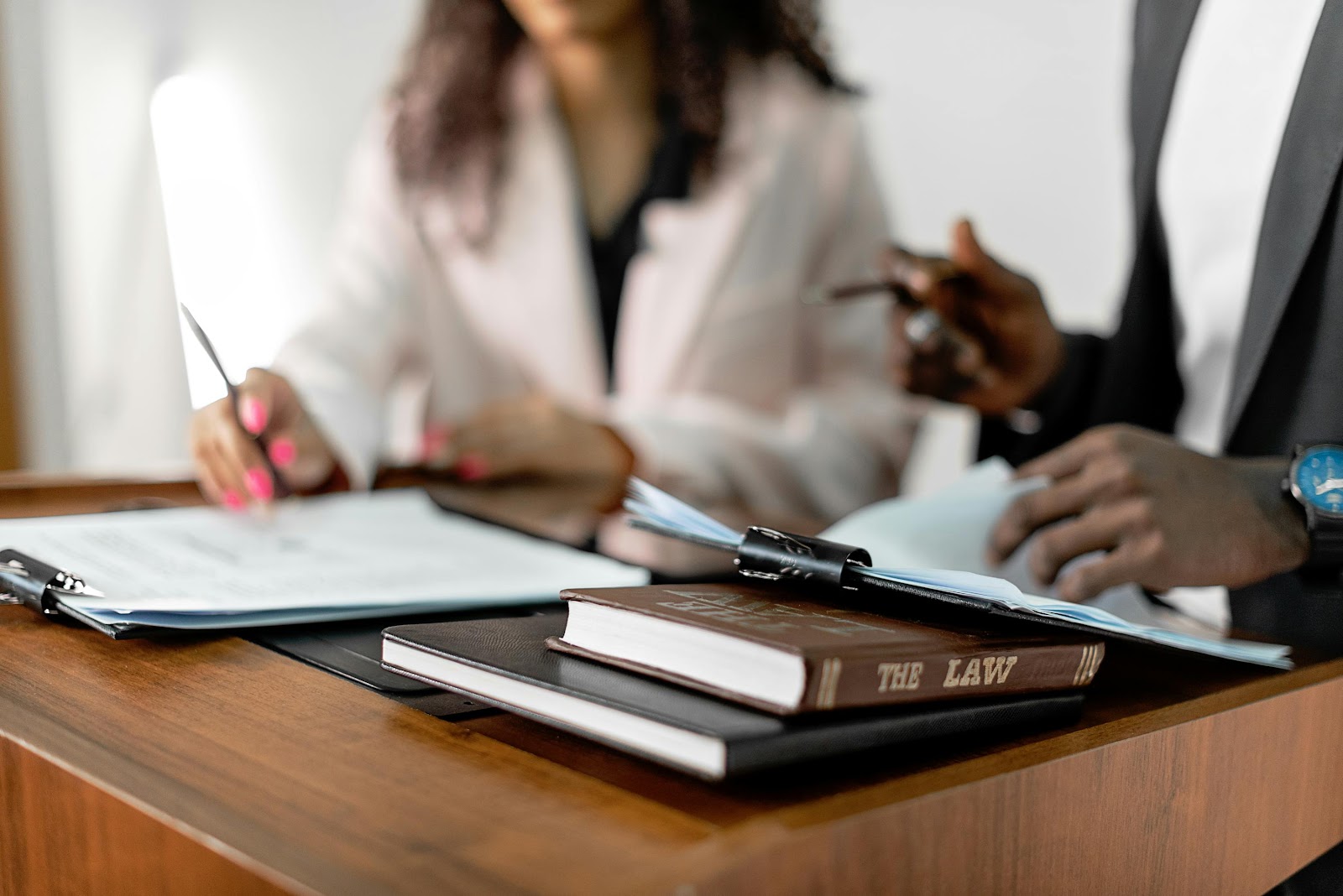For anyone, navigating the legal system can be difficult.
These difficulties are frequently exacerbated for those who are Deaf or hard of hearing because of communication difficulties and a dearth of easily available resources.
For members of the Deaf community as well as for advocates, legislators, and legal professionals dedicated to promoting justice and equal access, it is essential to comprehend the legal rights and protections available to Deaf people.

Legal Protections for the Deaf Community
Like all citizens, deaf people are entitled to the same legal protections and rights.
Nonetheless, special laws are in place to address the special requirements of the Deaf community, especially with regard to discrimination and communication access.
These rights are protected by anti-discrimination and disability rights laws in many nations.
For instance, one of the most extensive pieces of legislation in the US to safeguard the rights of individuals with disabilities, including the Deaf, is the Americans with Disabilities Act (ADA) of 1990.
In a number of contexts, such as healthcare, the workplace, and court proceedings, the ADA guarantees Deaf people the right to effective communication.
This could entail offering captioning, sign language interpreters, or other assistive communication tools.
Similarly, discrimination on the basis of disability, including deafness, is illegal in the UK under the Equality Act 2010.
In order to level the playing field and encourage inclusion, this act guarantees that Deaf people receive reasonable accommodations in services, education, and employment.
Access to Legal Services
One crucial area where Deaf people frequently encounter major obstacles is access to legal services.
Effective communication with legal representatives is essential to guaranteeing a fair trial and equitable legal outcomes, whether one is dealing with criminal charges, civil disputes, or family law matters.
The shortage of certified sign language interpreters in legal settings is a frequent problem.
For instance, in order to fully comprehend the proceedings at a court hearing, a Deaf person might need the assistance of a sign language interpreter.
To provide accurate interpretation in legal settings, however, interpreters need to be well-versed in courtroom procedures and legal terminology.
There are frequently few of these interpreters available, which causes delays or miscommunications that may have major legal repercussions.
Furthermore, it could be difficult for Deaf people to find accessible legal information.
Effective legal representation is further hampered by the fact that legal documents, which are frequently written in complex language, may not be easily accessible in sign language or plain English.
Ensuring Effective Communication in Legal Settings

Effective communication is not just a convenience for Deaf people; it is a legal right that is safeguarded by both domestic and international legislation.
For example, a United Nations treaty called the Convention on the Rights of Persons with Disabilities (CRPD) highlights that people with disabilities have the right to communicate and access information in ways that best suit their needs, including the provision of sign language interpreters and other accommodations in court.
Effective communication is even more important when it comes to law enforcement.
Deaf people have a right to communicate with police officers in a clear and understandable manner.
Depending on the person’s preferred mode of communication, this could entail written communication, real-time captioning services, or the use of interpreters.
If these accommodations are not made, there may be miscommunications, incorrect interpretations, and even rights violations.
To comprehend the communication needs of Deaf people, law enforcement personnel, including police, must be properly trained.
Regretfully, there are many documented instances where law enforcement’s ignorance led to erroneous arrests or the use of excessive force as a result of poor communication.
These incidents highlight how crucial it is for the criminal justice system to continue training and raising awareness in order to guarantee that the rights of Deaf people are respected and maintained.
Employment Rights and the Deaf Community
Another area where Deaf people frequently face legal obstacles is employment.
Whether deliberate or not, discrimination in the workplace can have a major effect on a Deaf person’s capacity to find and keep a job.
However, the law provides safeguards intended to stop this kind of discrimination and encourage diversity in the workplace.
Employers must make reasonable accommodations for Deaf workers under the Americans with Disabilities Act (ADA) in the United States and comparable laws in other nations.
This could entail setting up visual alert systems, offering sign language interpreters during meetings, or making sure that all videos used at work have captions.
With the help of these accommodations, Deaf workers should be able to carry out their jobs efficiently and on an equal basis with their hearing counterparts.
Many Deaf people still encounter major obstacles in the workplace in spite of these legal protections.
Because of misunderstandings about their abilities or worries about the expense of accommodations, some employers might be hesitant to hire Deaf workers.
In these situations, it is crucial that Deaf people understand their rights and that employers are properly informed about the advantages of an inclusive workplace.
Advancing Legal Protections
Even though Deaf people have made significant strides in obtaining legal rights and protections, much work remains to guarantee complete inclusion and accessibility in the legal system.
In order to advance these rights and increase awareness of the difficulties the Deaf community faces, advocacy organizations, legal experts, and Deaf people themselves are essential.
Legal professionals’ education and training regarding the unique needs of Deaf clients is one of the main areas that needs to be improved.
There may be miscommunications and a lack of suitable accommodations as a result of the fact that many judges, attorneys, and law enforcement personnel have little to no experience working with Deaf people.
The legal system can become more inclusive and sensitive to the needs of Deaf people by including disability awareness training in professional development and legal education programs.
Continuous efforts to increase accessibility in legal contexts are crucial, in addition to education and training.
This entails creating more easily accessible legal resources, expanding the pool of certified legal interpreters, and utilizing technology to close communication gaps.
For instance, remote interpreting platforms and video relay services can guarantee that Deaf people can obtain legal aid even in isolated or underprivileged locations.
Conclusion
For Deaf people to be able to fully engage in society on an equal basis with others, they must have access to the legal rights and protections that are available to them.
Even though laws like the ADA and the CRPD have made great strides, there are still obstacles in the way of guaranteeing that these rights are fully exercised in reality.
Achieving justice for Deaf people requires protection from discrimination in the workplace, the ability to communicate effectively in legal settings, and the ability to fully participate in court proceedings.
Society can strive toward a time when the legal system is genuinely inclusive for everyone by persistently advocating for increased awareness, better accessibility, and more robust legal protections.
For those who are looking for additional support, Unspoken Language Services offers interpreting services to help bridge the communication gap between the deaf and hearing communities.
Thumbnail: Photo by Mikhail Nilov

